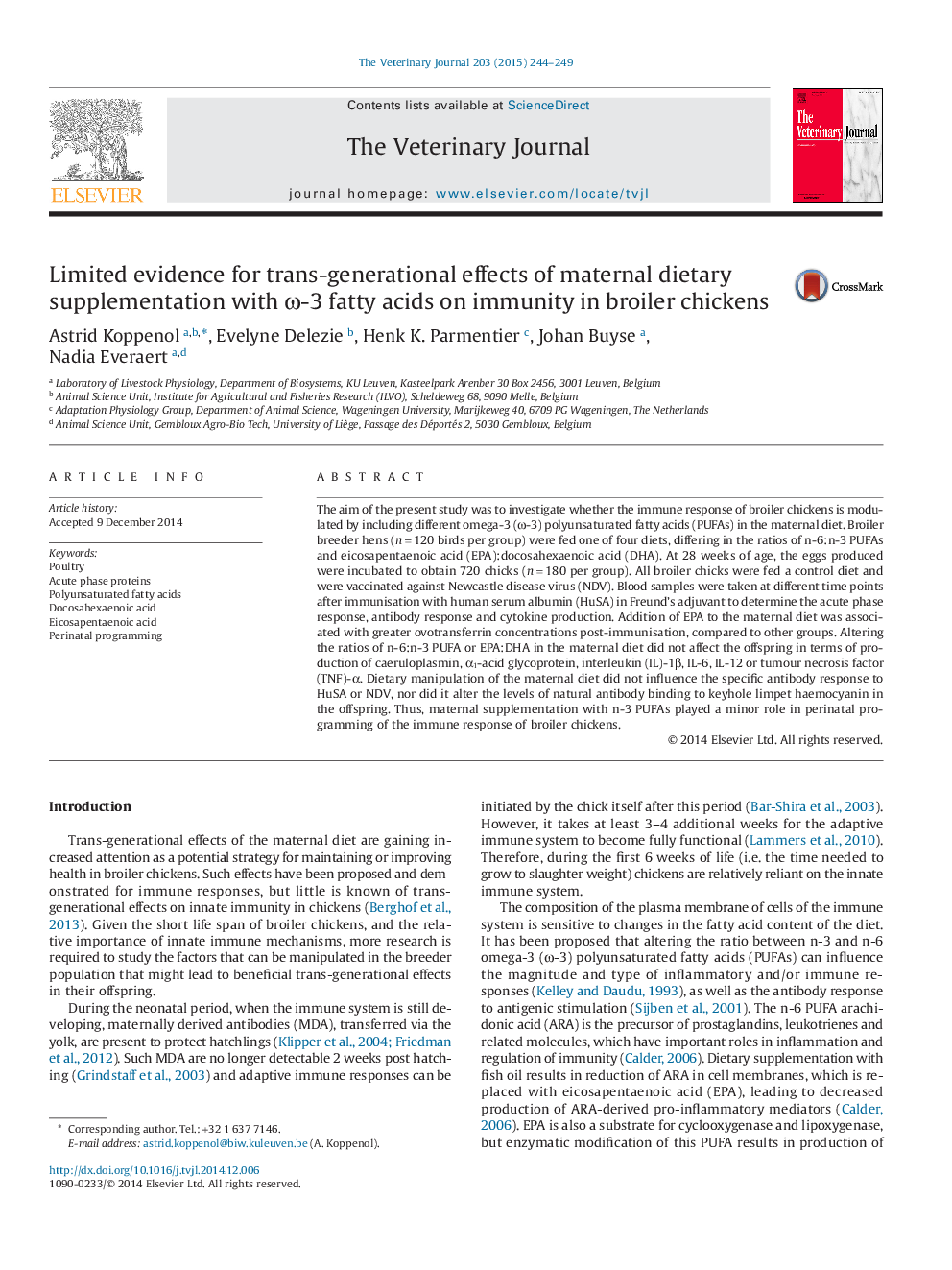| کد مقاله | کد نشریه | سال انتشار | مقاله انگلیسی | نسخه تمام متن |
|---|---|---|---|---|
| 5797619 | 1111756 | 2015 | 6 صفحه PDF | دانلود رایگان |
- Only subtle changes were found in the offspring immune response after maternal supplementation of n-3 fatty acids.
- Maternal n-3 supplementation did not affect the production of acute phase proteins, with the exception of ovotransferin.
- Freund's adjuvant was not the best agent to trigger acute phase response nor cytokine production.
- Maternal n-3 supplementation had no effect on plasma cytokine concentrations Maternal n-3 supplementation had no effect on offspring antibody response.
The aim of the present study was to investigate whether the immune response of broiler chickens is modulated by including different omega-3 (Ï-3) polyunsaturated fatty acids (PUFAs) in the maternal diet. Broiler breeder hens (nâ=â120 birds per group) were fed one of four diets, differing in the ratios of n-6:n-3 PUFAs and eicosapentaenoic acid (EPA):docosahexaenoic acid (DHA). At 28 weeks of age, the eggs produced were incubated to obtain 720 chicks (nâ=â180 per group). All broiler chicks were fed a control diet and were vaccinated against Newcastle disease virus (NDV). Blood samples were taken at different time points after immunisation with human serum albumin (HuSA) in Freund's adjuvant to determine the acute phase response, antibody response and cytokine production. Addition of EPA to the maternal diet was associated with greater ovotransferrin concentrations post-immunisation, compared to other groups. Altering the ratios of n-6:n-3 PUFA or EPA:DHA in the maternal diet did not affect the offspring in terms of production of caeruloplasmin, α1-acid glycoprotein, interleukin (IL)-1β, IL-6, IL-12 or tumour necrosis factor (TNF)-α. Dietary manipulation of the maternal diet did not influence the specific antibody response to HuSA or NDV, nor did it alter the levels of natural antibody binding to keyhole limpet haemocyanin in the offspring. Thus, maternal supplementation with n-3 PUFAs played a minor role in perinatal programming of the immune response of broiler chickens.
Journal: The Veterinary Journal - Volume 203, Issue 2, February 2015, Pages 244-249
